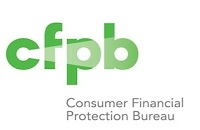Advertisement
CFPB Releases Federal Consumer Financial Complaint Data

The Consumer Financial Protection Bureau (CFPB) has gone live with the nation’s largest public database of federal consumer financial complaints, opening up to consumers across the country information on more than 90,000 individual complaints on financial products and services. “By sharing these complaints with the public, we are creating greater transparency in consumer financial products and services,” said CFPB Director Richard Cordray at a field hearing in Des Moines, Iowa, where he announced the expansion of the CFPB Consumer Complaint Database. “The database is good for consumers and it is also good for honest businesses. We believe the marketplace of ideas can do great things with this data.”
This launch expands the Consumer Complaint Database significantly from about 19,000 credit card complaints to more than 90,000 complaints on mortgages, student loans, bank accounts and services, other consumer loans, and credit cards. In many cases, it includes the sub-category of products. For example, for mortgages it includes reverse mortgages, conventional fixed mortgages, conventional adjustable mortgages, and home equity loans or lines of credit.
The database allows the public to see what consumers complained about and why, as well as how and when the company in question responds. It has more than one million data points, covering approximately 450 companies. It includes the type of complaint, the date of submission, the consumer’s ZIP code, and the company that the complaint concerns. The database also includes information about the actions taken on a complaint by those companies—whether the company’s response was timely, how the company responded, and whether the consumer disputed the company’s response. A consumer’s identity and other personal information is not included in the data.
The database allows users to easily track, sort, search, and download information. The data is also available via API (application programming interface), which allows developers to build applications, conduct analyses, and perform research. Consumers can build their own visualizations, charts and graphs. The data can also be embedded on other websites and shared through social media.
The live database updates daily; so as the CFPB handles more complaints, more will be added. When the CFPB accepts consumer complaints about other financial products and services, they will be put on the database after a period of time. For example, credit reporting complaints, which the CFPB recently began to accept, will be included in the database in the near future.
Complaints are listed in the database only after the company responds to the complaint or after they have had the complaint for 15 days, whichever comes first. Importantly, while the allegations in the complaint are not verified, a commercial relationship between the consumer and the company is substantiated before the complaint is added to the database.
Companies can categorize their response to a complaint in a number of ways. Examples, and what they mean, include:
►Monetary relief: The steps taken by the company in response to the complaint resulted or will result in measurable and verifiable monetary relief to the consumer.
►Closed with non-monetary relief: The result was not monetary relief, but may have addressed some or all of the consumer’s complaint involving non-monetary requests.
►Closed with explanation: The result included an explanation that was tailored to the individual consumer’s complaint. This category would be used if the explanation substantively meets the consumer’s desired resolution or explains why no further action will be taken.
►Closed: The company closed the complaint without relief–monetary or non-monetary–or explanation.
Consumers are given the option to review and dispute company responses. The CFPB then reviews that feedback. The CFPB uses this along with other information, such as the timeliness of the company’s response, in a variety of ways, for example, to help prioritize complaints for investigation.
About the author





